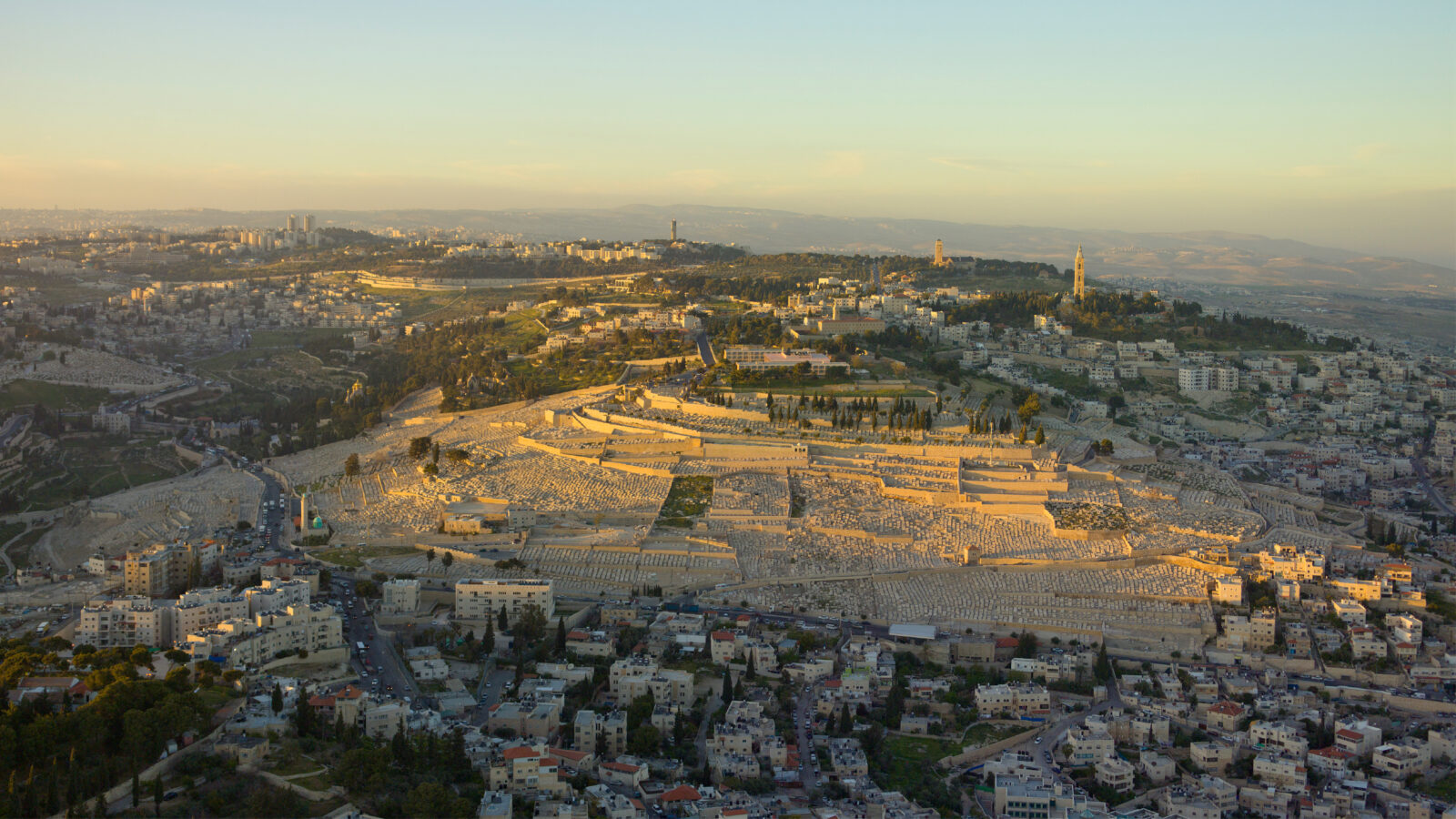Is the Mount of Olives really so important? If so, why?
The Mount of Olives, or Olivet, as it is called a few times in Scripture, really is an important geographic feature, mentioned many times in the Gospel record of the ministry of Christ. Forget the modern Mount of Olives that you may have visited or seen photos of; for nearly 2000 years ago when our Saviour trod the dusty roads of Palestine, the Mount would have looked quite different. No doubt there would have been much more vegetation there, including trees, not only the ubiquitous olive.
The first mention of the Mount of Olives is in 2 Samuel 15:30, during a perilous period in the kingship of David. His handsome but wicked son, Absalom, had intentions of seizing the throne, and looked like he might succeed. So much so that David fled with his loyal courtiers. It is worthwhile for the purposes of this article to quote this text here:
“So David went up by the ascent of the Mount of Olives, and wept as he went up; and he had his head covered and went barefoot. And all the people who were with him covered their heads and went up, weeping as they went up.” Here is one king, weeping on Olivet. Fast forward a thousand years and another King wept on that same Mount, weeping over Jerusalem, that failed city that He loved so much, knowing it would be reduced to rubble by the Romans.
It is fascinating to read a major prophetic statement by Zechariah, where, in chapter 14, verse 4 he writes, “And in that day, (the Lord) will stand on the Mount of Olives, which faces Jerusalem on the east. And the Mount of Olives shall be split in two, from east to west, making a very large valley; half of the mountain shall move toward the north and half of it toward the south” (for further reading, see The Great Controversy, page 662).
We move now to the New Testament, where, in John’s gospel (8:1) we find the statement that could well have been repeated many times: “But Jesus went to the Mount of Olives.” In chronological order, this is the first reference in the New Testament to this special place.
Again, in order, we find the next mention of the Mount of Olives in several places, where Matthew, Mark and Luke mention the same events. This is at the commencement of the Passion Week, when Jesus is shortly to share the Last Supper with His disciples. In the same passage Mark (11:1) and Luke (19:29) include the villages of Bethany and Bethphage, whereas Matthew only mentions Bethphage. It was at the Mount of Olives that the events were launched that led to the climax of Christ’s ministry as He achieved our salvation.
When Christ made His major statement relative to the chaos that would descend on the world in its death throes toward the end of time, He used as His platform the slopes of the Mount of Olives (Matthew 24:3). Mark adds that they could see the Temple from there (Mark 13:3). Some of Christ’s most pointed parables were spoken, not from the Temple, but out in the open air on the slopes of Olives, where the common people heard Him gladly. A little later He did speak in the Temple but as Luke reports, “at night he stayed on the mountain called Olivet” (21:37).
As the shadows of the cross were not far away, after that last supper with His disciples, the little band made their way to the Mount of Olives. Matthew (26:30) and Mark (14:26) record that when they had sung a hymn they went out into the night. Luke adds that it was at that place that Christ spent much time in prayer during His ministry (22:39).
The first half of the first chapter of Acts could well be regarded as an addendum to the Gospels, for it was at that time that Luke records Jesus bidding farewell to His disciples. As Christ ascended to be with His Father, these few men looked up with wonderment to see their beloved Master and Teacher leave them, never to be seen by them until the second coming. It was on Olivet that Jesus said goodbye to the ones He loved so much and to whom He had committed the work He had commenced (Acts 1:12).
Zechariah’s prophecy, referred to earlier, could fit well into the last book of the Bible, as John the Revelator refers to the New Jerusalem coming down out of heaven from God (Revelation 21:2). The question we could well ask ourselves is this: will I be in that city seeing our Lord standing on the Mount of Olives, turning it into a vast plane? The place that meant so much to Christ, the Mount of Olives, will never be the same again.
William Ackland is retired in Cooranbong (NSW) and has written eight books.






